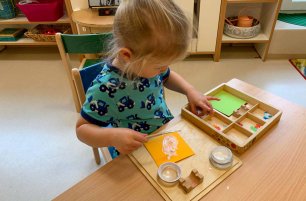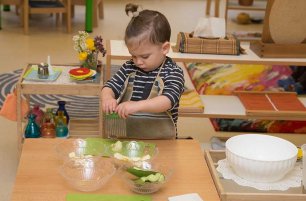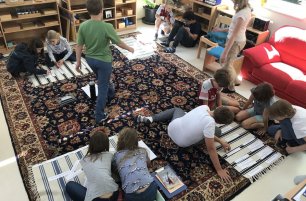Planting Toddlers in Mud
April showers bring May flowers... here we are in the blustery, chilly beginnings of Spring. It is a time of much anticipation as the first leaves and flowers appear, but also often much frustration for parents as seemingly endless mud, rain and puddles interfere with outside play.
 “There is no bad weather, only bad clothing” is a mantra that we might need to consciously remember more often this time of the year. Good rainboots, waterproof “rain pants”, warm fleeces and rubberized jackets are a must for small children who are just as likely to fall flat onto their nose into a puddle as they are to slip and sit down in the biggest pile of mud they can find. However, for them, nature now is a magical trove of experiences and opportunities. Splashing in puddles, poking mud with sticks (and there is so many great sticks lying around after a windy day), discovering tiny plants, finding bugs and worms, building with sticky, wet sand – all of these are endlessly appealing (and developmentally beneficial!) activities that just offer themselves right now.
“There is no bad weather, only bad clothing” is a mantra that we might need to consciously remember more often this time of the year. Good rainboots, waterproof “rain pants”, warm fleeces and rubberized jackets are a must for small children who are just as likely to fall flat onto their nose into a puddle as they are to slip and sit down in the biggest pile of mud they can find. However, for them, nature now is a magical trove of experiences and opportunities. Splashing in puddles, poking mud with sticks (and there is so many great sticks lying around after a windy day), discovering tiny plants, finding bugs and worms, building with sticky, wet sand – all of these are endlessly appealing (and developmentally beneficial!) activities that just offer themselves right now.
So whilst holing up in a blanket fort with tea and story books has its plays, please don’t forget to spend some squishy, splashy, muddy times outside this Spring!
Michaela Tučková – toddler teacher in IMSP
Want to learn more? Read our next article:




